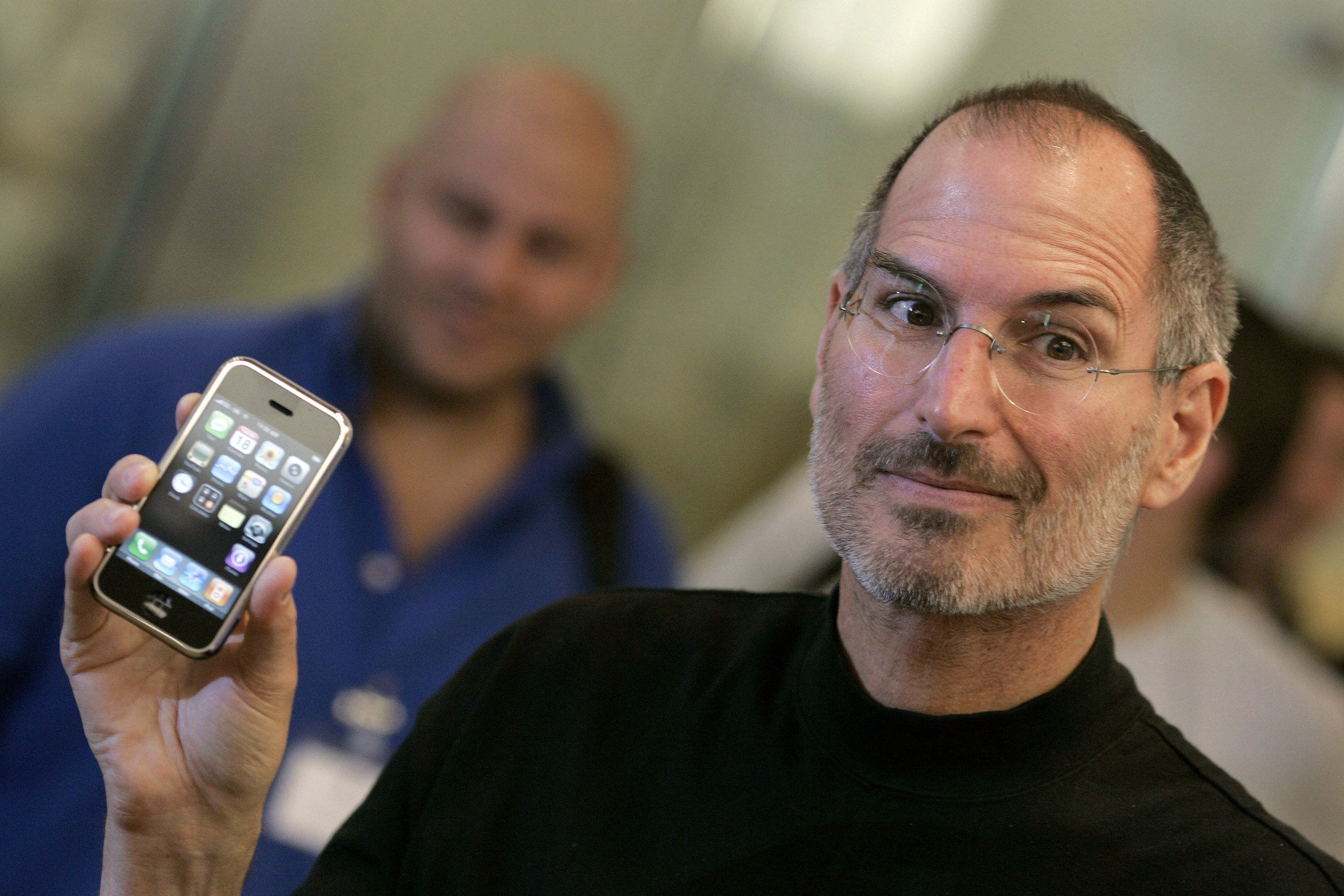Earlier this month, Apple became the first American company with a market cap over $1 trillion.
That was mostly due to the iPhone, possibly the most profitable product in modern history.
Last year, Apple sold over 216 million iPhones.
Obviously, it’s a major hit – it basically mints money for Apple, now the most valuable company in the world.
But when it first came out, there were a lot of people who didn't think it was all that great. In fact, some people thought the iPhone was going to be an outright flop.
Here are some of those doubters and skeptics:
Steve Ballmer, then Microsoft's CEO: "There's no chance that the iPhone is going to get any significant market share. No chance."

The Microsoft CEO at the time made the claim to USA Today.
Richard Sprague, then-Microsoft senior director: "I can’t believe the hype being given to iPhone. I just have to wonder who will want one of these things (other than the religious faithful.)"

Source: Microsoft blog via Daring Fireball
Three years later, Microsoft held a funeral for the iPhone when it launched a new version of Windows Phone.

More details about the Microsoft stunt here.
Jim Balsillie, then RIM's co-CEO: "It’s kind of one more entrant into an already very busy space with lots of choice for consumers. But in terms of a sort of a sea-change for BlackBerry, I would think that’s overstating it."

Source: Reuters.
Jon Rubinstein, then a top Apple executive, later Palm's CEO: "Is there a toaster that also knows how to brew coffee? There is no such combined device, because it would not make anything better than an individual toaster or coffee machine."

Rubinstein gave this quote in late 2005, six months before he left Apple. He went to head Palm, which was crushed by the iPhone before it was sold to HP.
Ed Colligan, Palm's CEO at the time: "We've learned and struggled for a few years here figuring out how to make a decent phone. PC guys are not going to just figure this out. They're not going to just walk in."

He said this a few months before the iPhone was revealed.
Then, after the iPhone launched, Colligan said: "We don’t want to follow design fads."

Source: Marketwatch
Nokia scoffed, too. Here's what Anssi Vanjoki, its chief strategist at the time, said: "Even with the Mac, Apple has attracted much attention at first, but they have still remained a niche manufacturer. That will be in mobile phones as well."

Source: Handlesblatt
Nokia's CEO then, Olli-Pekka Kallasvuo, didn't take the threat seriously either: "I don't think that what we have seen so far (from Apple) is something that would any way necessitate us changing our thinking when it comes to openness, our software and business approach."

Source: Reuters
Ed Zander, Motorola CEO at the time, was asked how he planned to deal with the iPhone. His reply: "How do they deal with us?"

Source: IDG
John Dvorak: "What Apple risks here is its reputation as a hot company that can do no wrong. If it's smart it will call the iPhone a 'reference design' and pass it to some suckers to build with someone else's marketing budget. Then it can wash its hands of any marketplace failures."

The widely-read technology critic made this claim in a column for MarketWatch titled "Apple should pull the plug on the iPhone."
Now, 11 years later, the iPhone is an unquestionable success. In 2016, Apple announced that it had sold 1 billion iPhones.


